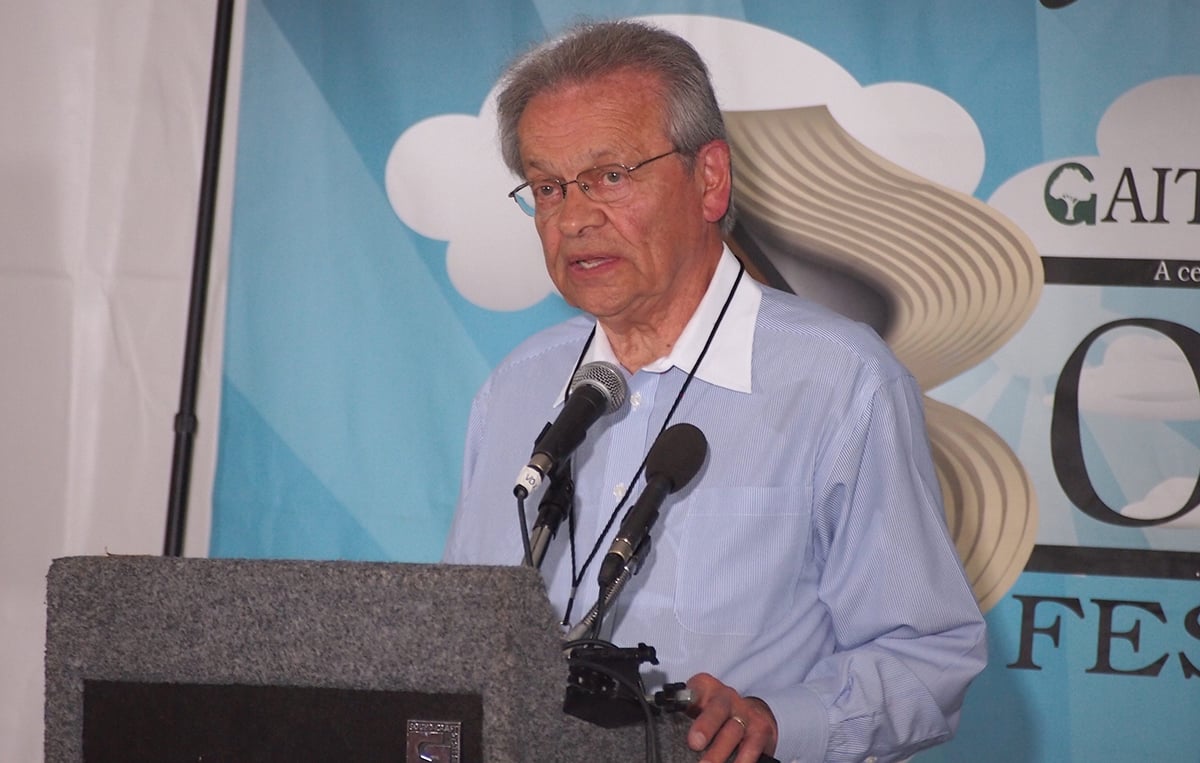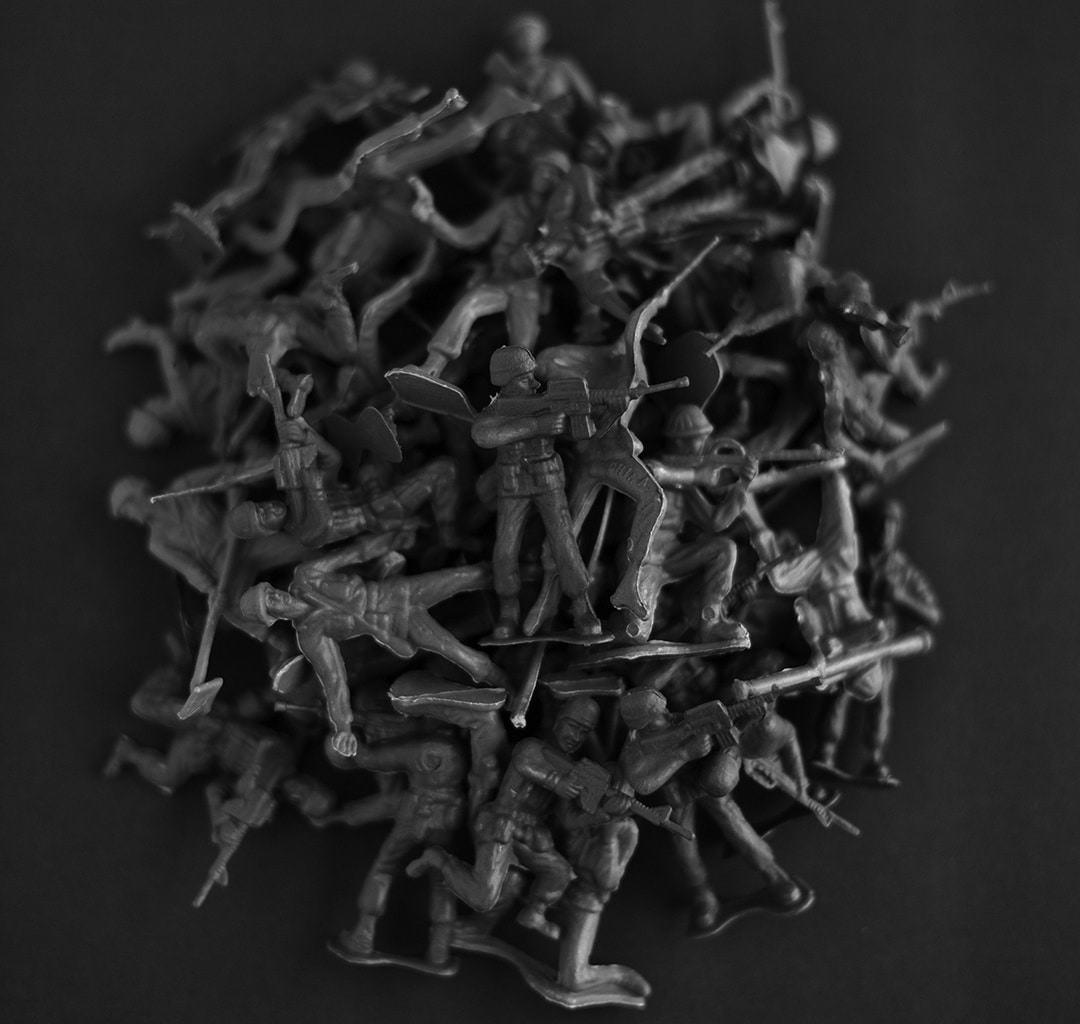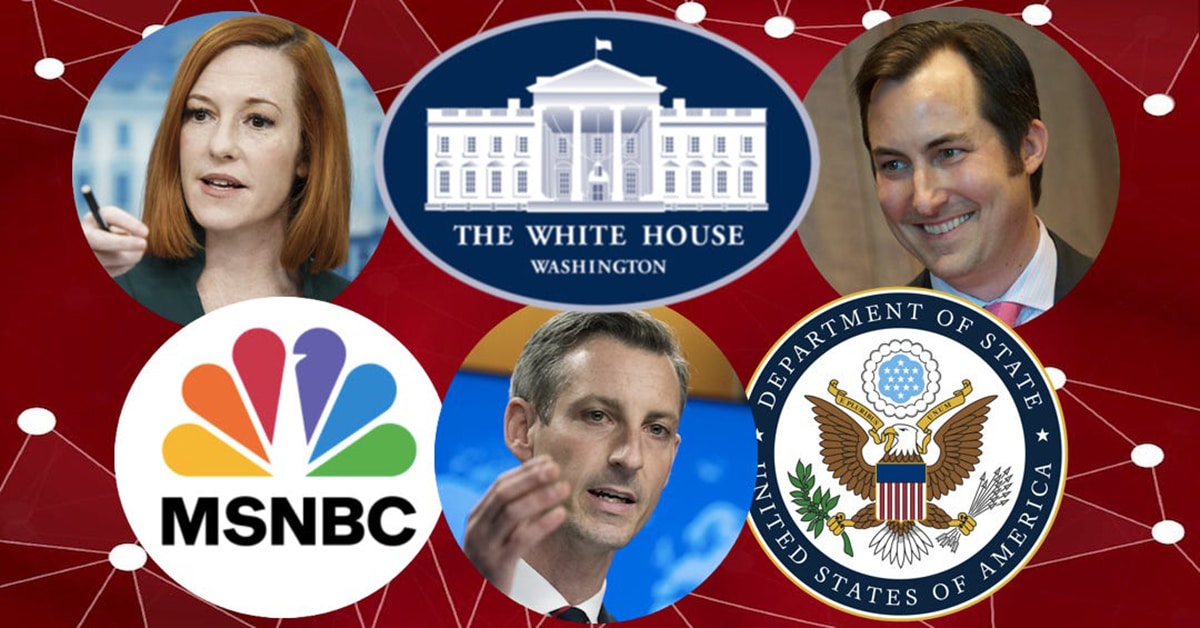

CIA Media Manipulation: Former CIA Analyst Mel Goodman
by Rebecca Strong | Jul 25, 2022
“Writers do tend to lose their sense of skepticism, which you should particularly have dealing with CIA operational people — because their one real skill in terms of tradecraft is manipulating opinion.”
It’s no secret that the CIA has a long and sordid history of controlling the news.
The most well-known example of this is Operation Mockingbird, a large-scale program that began in the early years of the Cold War. The gist: between the ‘50s and ‘70s, the CIA contracted and bribed journalists to both write propagandistic stories, as well as avoid reporting about certain events that might paint the CIA or U.S. government in a bad light.
Renowned journalist Carl Bernstein exposed Operation Mockingbird in 1977, revealing that some reporters were paid $500,000 or more for work commissioned by the CIA. Bernstein also reported that at least around 400 journalists had been working for the CIA since 1952. But even more alarming was the relationship between the CIA and major news outlets at large — including The Associated Press, Columbia Broadcasting System, and Time magazine. For example, the publisher of The New York Times — a good friend of then-CIA Director Allen Dulles — signed an agreement to allow at least 10 CIA officers to serve undercover as reporters or other staff in its foreign bureaus.
While it’s assumed that the operation closed down after it came to light, some have suggested that it never really ended — or perhaps was covertly resumed under a different name. Others have theorized that while Operation Mockingbird may be dead, it’s possible that the CIA developed newer and more sophisticated tactics for manipulating the news. One thing’s for sure — whether or not there’s a large-scale operation at play, we do have clear evidence that the CIA continues to forge cozy relationships with news reporters, who then spin stories in their favor, and sometimes even send them drafts to read and approve before publication. (See: The L.A. Times’ Ken Dilanian)
Given the inherent secrecy around the CIA, the only real way to find out what happens behind closed doors is to talk with someone who’s worked there. Melvin Goodman began his career as a CIA analyst in 1966. In 1974, he was transferred to the Bureau of Intelligence and Research for two years, where he worked as a senior analyst. He later returned to the CIA in 1976, serving as division chief and senior analyst at the Office of Soviet Affairs. In 1990, after 24 years of service with the CIA, he resigned. His reasoning? He could no longer tolerate the deep-seated corruption he was witnessing at the top levels of the agency. Soon after, in the widely publicized Senate hearings about the appointment of Robert Gates as CIA director, Goodman asserted that Gates had undermined “the process and the ethics of intelligence” by deliberately misinforming the White House about major world events and covert operations.
Goodman went on to become a professor of national security and a senior fellow at the Center for International Policy. His book Whistleblower at the CIA: An Insider s Account of the Politics of Intelligence serves as a candid and powerful expose on the problematic inner workings of the agency — and in former NSA executive Thomas Drake’s words — a “wake-up call for what’s at stake, and why we cannot trust the CIA or the intelligence establishment to do the right thing.”
Recently, I sat down with Goodman for a phone interview to get his perspective on how the CIA may continue to have a hand in shaping the news, his own experiences with CIA censorship, and why the media is failing the public by serving as a mouthpiece for the CIA’s claims, rather than keeping its power in check. Here’s an excerpt from that conversation.
(This interview has been condensed for the sake of brevity.)
RS: When most people think about the CIA’s relationship with the media, they think of Operation Mockingbird. And often the assumption is that once that was exposed, the CIA cut ties with newsrooms and that wasn’t really an issue anymore. But I’d love to hear how you think that relationship may have evolved. In other words, in what ways do you think the CIA may continue to influence media coverage today?
MG: Well, it’s important to start with the notion that when you’re talking about the CIA you’re talking about two different organizations: the intelligence side, which is overt, and the operational side, which is covert. On the overt side, I think there’s general intimidation that’s effective — you can’t talk to newsmen, because you’ll have trouble with your polygraph. But on the operational side, these people who serve overseas — as part of their jobs — they do deal with media people. Sources are developed that way.
The one I know the most about is the relationship David Ignatius — The Washington Post intelligence columnist — had with the agency. I’m not fond of his work… I consider him an apologist for the CIA.
There was a very well-known operational officer by the name of Robert Ames. Ames was a senior operative and a station chief in the middle east. He and Ignatius developed a very close relationship — in fact, a novel that Ignatius wrote is based on a lot of trade secrets that Ames shared with him.
Ignatius, I know, has maintained contacts on the operational side. So, if there’s any formal or informal connection between CIA officers and journalists, it’s operational.
But it’s not like what it used to be when you had regular social occasions in Georgetown where a CIA director like Richard Helms would be there, and if it was the Johnson administration Eugene and Walt Rostow would be there… and they’d get a lot of inside information. I don’t think that exists, to that degree, anymore. I think one of the things that have happened is that the CIA has one of its first good directors in about 40 years.
But journalists don’t seem to be in a questioning or scrutinizing mood when it comes to the CIA.
So, I don’t know of any specific formal relationships, but I have a strong sense that journalists still have good ties with CIA people.
RS: I’ve read that the CIA may occasionally screen stories on controversial topics before they get aired or published. Do you know anything about that?
MG: It does happen, but I think it’s rare.
The case I’m familiar with was in the late ‘70s, when The Washington Post became aware of the close connection between the CIA and King Hussein. The story was brought to Admiral Turner, the director of central intelligence at the time. And Turner did his best to get the Post not to run the story because he thought it would be so embarrassing for the CIA at the time. But the Post ran the story anyway.
The other one I remember is — and I think it was the Post, but it could have been the Times — became aware of the special facilities that the CIA had in Iran that were lost when the revolution took place. A lot of their monitoring of Soviet strategic missiles came from systems that were in Iran. They had to get out, and they were taken in by China — which was a real coup on the part of the CIA to get China to agree to that. And again, the press checked the story out with the CIA — and this one may have gone all the way to the President to try and convince them not to run the story. But again, they went ahead and ran it.
It goes back to The Bay of Pigs, when Kennedy talked The New York Times out of running his story. The Times backed down and didn’t run the story, and Kennedy later said he wished they had because it would have saved him a very serious embarrassment.
RS: People imagine this idea of “censorship” being really overt — an editor telling a journalist outright that they can’t run a story, or crossing whole sections out with a red marker — but at least in my own experiences and research, self-censorship seems to be more common. A lot of journalists won’t bother to pursue certain stories because they don’t want to risk their careers or their reputations.
MG: I think there’s a lot of self-censorship, I agree with that. But the reason they self-censor is they don’t want to lose the source they have within the CIA. And if they embarrass or compromise that source, they’ll never hear from them again.
When I was testifying against Gates’ nomination for director of the CIA in the early ‘90s, I was leaking material to Elaine Sciolino at the Times and she ran it. At some point, she stopped using my stuff. I had lunch with her and asked why she stopped, and she said ‘well, halfway through the hearings I realized that Gates was going to be confirmed as director, and you weren’t going to be able to block it. You’d go back to the college where you were teaching and I’d probably never need to call you on again but Gates would be an important source for me.’”
RS: From the time I first read about Gary Webb (background on him here and here), I became completely consumed with his story. I’m not sure just how familiar you are with it, but I’d imagine based on the timeline of when you were working with the agency that you’d be somewhat aware of what happened. What fascinated me was how so many of his peers at these legacy newspapers were so quick to tear his work apart. And there are a lot of theories about that — I watched a documentary recently that suggested these journalists at the Post and the Times were jealous that he scooped the story before they did, especially since he worked at a smaller outlet. There have been other suggestions that these journalists may have been directly instructed to poke holes in his story, maybe due to direct pressure from the CIA. What’s your take on how that played out?
MG: I followed it. I followed it because the inspector general got involved at the CIA under John Deutsch. I remember Deutsch went out to California because of the fantastic opposition that was developing toward the CIA as people felt they were involved in the drugs that were getting into these neighborhoods. Webb may have overreached with his accusations… but he was on to something. And because it was The San Jose Mercury News and not The Washington Post or The New York Times or The L.A. Times, I agree that there was a certain amount of jealousy from these other reporters. And instead of taking his material and trying to develop it, they went after him personally.
The fact of the matter is, I think Webb was right on one level: The CIA knew that these drugs were being run into the country, and the Contras were profiting off them. And the CIA director at the time — William Casey — by law, he had to report that to the Department of Justice, which wasn’t done initially. Eventually, there was some reporting to justice.
But there was a story there. There was a story that involved the CIA director, who always got the benefit of the doubt from big-name journalists.
In Woodward’s book, for example, he praises Casey. In Tim Weiner’s book ‘Legacy of Ashes,’ he refers to Casey as ‘brilliant’ and ‘inspirational’ — anyone who knew him would say he wasn’t either of those things. I think he had serious issues to begin with, but brilliant certainly wouldn’t describe him. But he got very fair handling from the journalists. And that’s the problem. Because writers are intimidated by CIA directors, and they want to keep them as sources.
RS: You’ve written a lot about how television news networks cover the CIA using only current or former agents as sources.
MG: MSNBC always uses CIA spokesmen in stories discussing the CIA. These are people who have been involved in very shaky dealings, like the former deputy director John McLaughlin, who was a regular at MSNBC. I wrote the network a few times saying, ‘do you realize that this is a person who was shading intelligence, for example, pertaining to the Iraq War’?” And the Iraq War — I don’t know if you saw the movie Official Secrets — but I think the British press and the American press were willing to give the government the benefit of the doubt on all the lies about weapons of mass destruction. Look at all the mainstream journalists who were wrong about that.
I spent a lot of time calling these journalists, like Walter Pincus and George Lardner, about it. And it was only when I finally talked to Warren Strobel that he picked up the story. They bought into the WMDs. The press was clearly guilty. And then you get into Judith Miller at The New York Times, who I think is a first-rate reporter but should’ve known better.
The lack of scrutiny — that to me, is the problem. The lack of openness to look at both sides of the issue.
RS: I came across an article written by Glenn Greenwald a while back essentially saying what you’re saying, that journalists at mainstream outlets tend to handle the CIA with kid gloves, even when they don’t have other independent sources to corroborate information. It seems like such a glaring conflict of interest to me if you’re doing a piece on the CIA and only using CIA employees as sources. I’m curious, why do you think the press is doing such a terrible job of monitoring the agency?
MG: Well, most reporters on this beat will say it’s tough to develop sources. And when they do find sources, they don’t want to compromise them. So these writers do tend to lose their sense of skepticism, which you should particularly have dealing with CIA operational people — because their one real skill in terms of tradecraft is manipulating opinion. I mean, an operations officer’s career is based on his ability to manipulate the opinions of others.
One of the real problems is how CIA insiders have to submit work they write to the publications review board — which is essentially a CIA censorship office. That’s where officials have to, by law, send their writings and lectures for approval.
RS: Even former officials? After they leave the agency?
MG: Even after they leave. For my Counterpunch columns, I don’t submit them. It’s an online publication, and when I joined the CIA, nobody knew what an online magazine was [chuckles], so I think it’s outside the constitutional limits of the CIA. But the whistleblowing memoir I wrote about my experiences there — they held on to that for nearly 11 months, which is a good way to censor people who don’t want to deal with going back and forth about what’s classified and what isn’t, what can be included and what needs to be taken out.
It got to the point where in a couple of cases where I just ignored them. My feeling was that if they wanted to come after me, they could turn a book that’s probably not going to sell very well into a bestseller. They could make that book very important very easily.
And then I went to the ACLU and got a lawyer. But just this week, the Supreme Court said they wouldn’t take the case. It’s a censorship campaign. I don’t know how else to describe it.
RS: I was really young when Snowden’s NSA leak happen. But I remember thinking at the time, how could anyone see him as a traitor? How could he have put our country in danger? Looking back, I can understand now that there are always going to be people who argue for censorship in the name of national security. What’s your take?
MG: The problem is, the Supreme Court will always favor the government — they won’t touch a national security case. I followed the Snowden case very closely, and what was interesting to me is that after the Obama administration ended, his attorney general then started to refer to Snowden as a public servant. Because it changed some of the laws about surveillance. I mean, the constitution itself was being violated. All because of Snowden, who’s living like a bird in a gilded cage in Russia… which I find kind of ironic.
RS: In examining some of the angles that the media has been taking on the Russia-Ukraine war, do you believe that the CIA may have a hand in shaping those narratives?
MG: I don’t think so, but I do have one experience that might be relevant. When the Soviets invaded Afghanistan in 1979, I was running the Soviet foreign policy shop. And we were asked to brief reporters. We weren’t given any lines of direction — we held news conferences and told them what we knew about the war. The feeling was that the Soviets were clearly guilty of this invasion, so we tried to give them as much material to work with without compromising sources. I assume something like this is going on again. And I think the sophisticated relationship between the intelligence community and the press is generally a good thing — but their information and activities still need to be scrutinized.
One thing I’ve learned from my 25 years at CIA, the collection is remarkable. When you have intelligence failures, it’s not because of collection, it’s because of analysis.
RS: I feel like, as U.S. news coverage of this war started ramping up, I kept having these flashbacks or deja vu about the media’s coverage leading up to the war in Iraq. In retrospect, we learned some lessons from how that was handled, or at least I hoped we did. I’m interested in how you think that might relate to what’s happening today.
MG: Well, that was a classic case of the media not doing its job. But this time I think the media is realizing that the information that the CIA was putting out there — and even British intelligence, which is usually much more discreet — has been mostly spot on.
But sometimes I do think it’s been excessive. A good example would be this threat of the Russians using chemical weapons — I’m not saying they wouldn’t do it, but when they were saying they had sourcing confirming it they were going too far, and the media was buying it.
I think the same may be true about them using nuclear weapons. I really object to someone like Burns, the CIA director, traveling around the country — I know he went to Atlanta — to warn about the possible use of nuclear weapons. I think that’s sort of crossing the line of policy advocacy. And I think it’s wrong, and the media should have tried to correct that by making it clear to Burns that was excessive. But again, right now the media is on such good paper with the CIA, so they’re not inclined to criticize.
And again, look at who’s commenting on the war. It’s all these retired generals, many of which who have positions at these military-industrial companies, meaning they’re going to benefit from this war.
Where is the critic? Where is the person who’s going to say, ‘Why isn’t the Biden administration spending more time trying to get a ceasefire? Or slowing down the tempo of the war? Why are we providing the kind of weaponry that will expand the war?’” To me, the Russia-Ukraine war has the potential to become the Russia-America war. And I don’t see the media being aggressive enough in making critical points along these lines. That’s what’s missing.





0 Comments